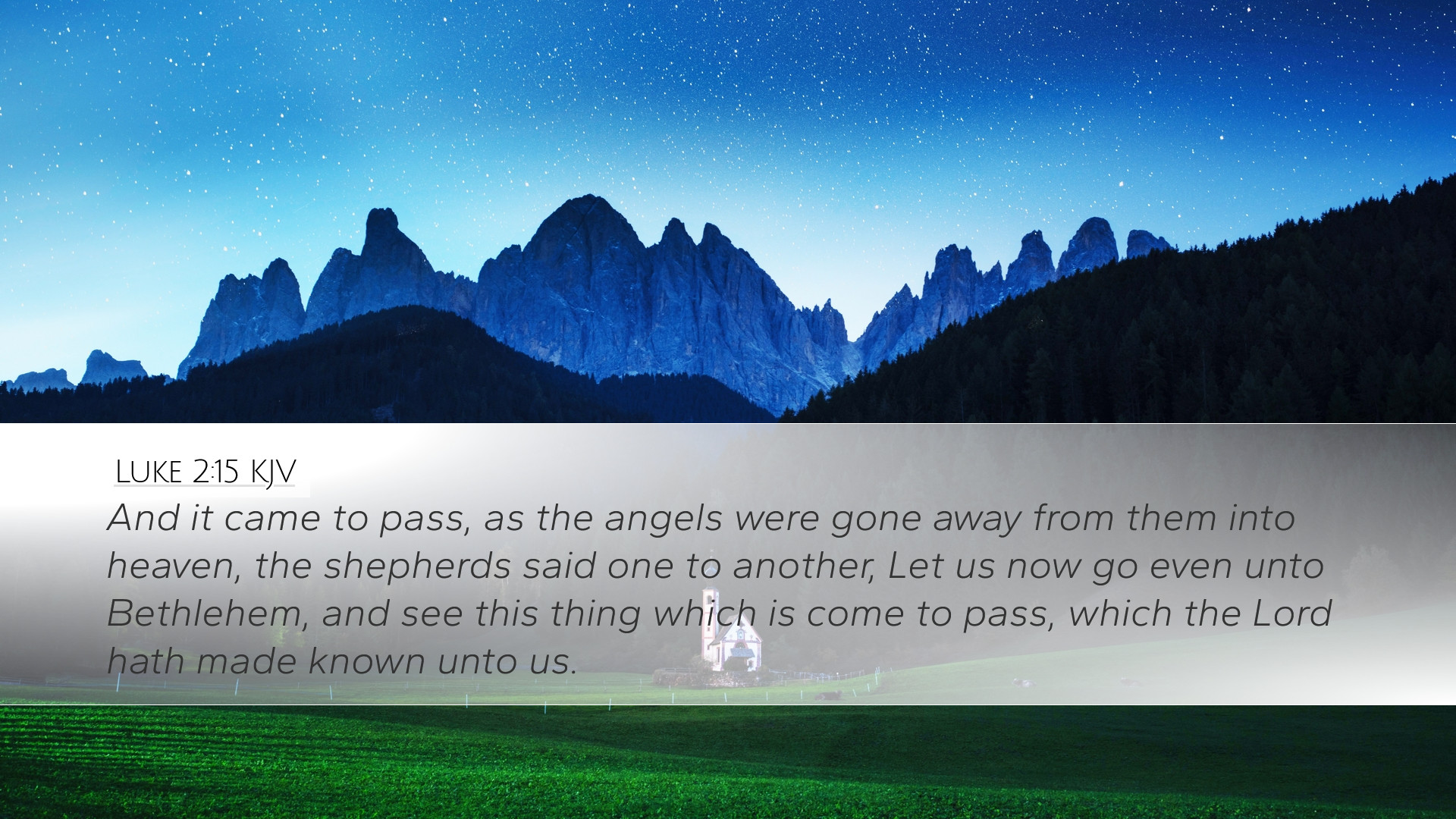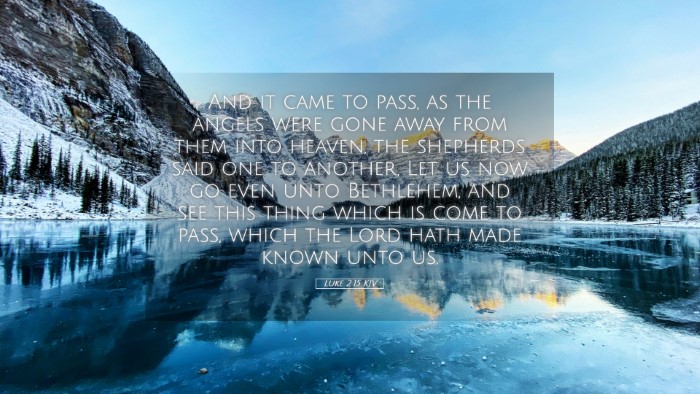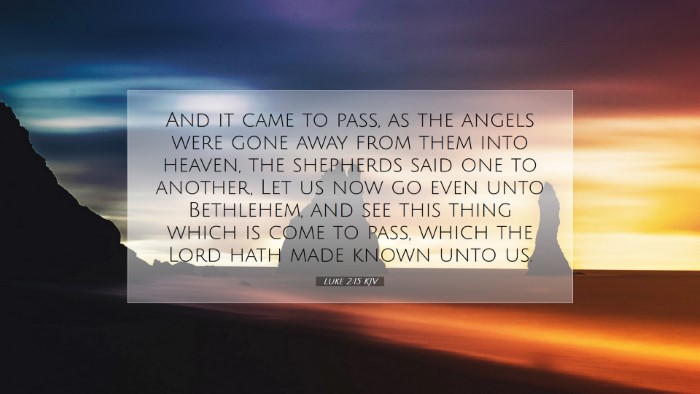Commentary on Luke 2:15
Introduction
Luke 2:15 presents a pivotal moment in the narrative of the birth of Jesus Christ. This verse highlights the actions and reactions of the shepherds who were first to receive the announcement of the Savior's birth. Their response reflects not only immediate obedience but also deep theological implications regarding God’s redemptive plan. This commentary synthesizes insights from several public domain sources including Matthew Henry, Albert Barnes, and Adam Clarke, offering a rich exploration of this scripture for pastors, students, theologians, and Bible scholars.
Text of Luke 2:15 (KJV)
“And it came to pass, as the angels were gone away from them into heaven, the shepherds said one to another, Let us now go even unto Bethlehem, and see this thing which is come to pass, which the Lord hath made known unto us.”
Contextual Background
The birth narrative of Jesus in the Gospel of Luke emphasizes the humility of the Savior’s entry into the world. Prior to Luke 2:15, we see a multitude of heavenly hosts praising God, announcing the birth of Christ to the lowly shepherds. This is significant as it underscores God's choice to reveal His gospel first to those of humble status, embodying the theme of divine grace extending to all humanity.
Verse Analysis
1. The Announcement of the Angels
Divine Revelation: The verse begins with the angels departing. As Matthew Henry notes, the return to heaven signifies the end of their earthly mission. However, their announcement heralds a reality that transforms the shepherds' lives.
Impact of the Revelation: The shepherds are not passive recipients; they actively engage in dialogue. Albert Barnes comments on their immediate and collective response, which indicates unity in faith and purpose. Their decision to investigate the message reflects a genuine curiosity and readiness to encounter the miraculous.
2. The Response of the Shepherds
Henry elaborates on the shepherds’ eagerness: "Let us now go..." signifies an urgency that should inspire all believers. Their promptness contrasts with the indifference often found in the broader societal response to divine revelation.
- Gathering Together: The shepherds' decision to go together demonstrates the importance of community in faith journeys, aligning with the idea that believers are called to discover God’s work collectively.
- Faith in Action: The phrase "see this thing which is come to pass" emphasizes the necessity of fulfilling the promise. Adam Clarke observes that their action was fueled by faith, as they chose to act upon the celestial message delivered to them.
3. The Significance of Bethlehem
Fulfillment of Prophecy: The shepherds' destination, Bethlehem, holds profound theological significance. It is the prophesied birthplace of the Messiah (Micah 5:2). Clarke notes that their visit is a moment of prophetic fulfillment, which not only confirms God’s word but also highlights God's sovereignty in history.
The Ordinary and the Extraordinary: The shepherds themselves represent the common man, yet they are the first to witness the extraordinary event of Christ’s birth. Barnes points out this juxtaposition as a clear indication that the gospel is accessible to all, regardless of social status.
Theological Implications
1. Divine Communication
This passage reinforces the theme that God communicates His plans to humanity in unexpected ways. The choice of shepherds as the recipients of this divine revelation reflects God's desire to reach those considered lowly by societal standards.
2. The Nature of Faith
The shepherds’ willingness to go and see represents a model of faith in action. Their faith manifests not merely as belief but as a proactive response to God’s call, illustrating a foundational principle in Christian belief: faith works through action.
3. Community in Discovery
The collaborative spirit displayed by the shepherds is vital for contemporary Christian life. It speaks volumes about the power of fellowship in seeking and understanding divine truths. The church ought to follow the example of the shepherds, sharing and fulfilling God’s messages together.
Conclusion
Luke 2:15 serves as both a narrative and a theological cornerstone in understanding the implications of Christ’s birth. The actions of the shepherds highlight several key themes relevant to believers: the nature of divine communication, the active expression of faith, and the importance of community in the spiritual journey.
As pastors and scholars mediate on this passage, one can find encouragement in the extraordinary nature of God’s working through ordinary people. This passage calls for an urgent response to God’s revelations, fostering a commitment to share the good news with all who will listen.


